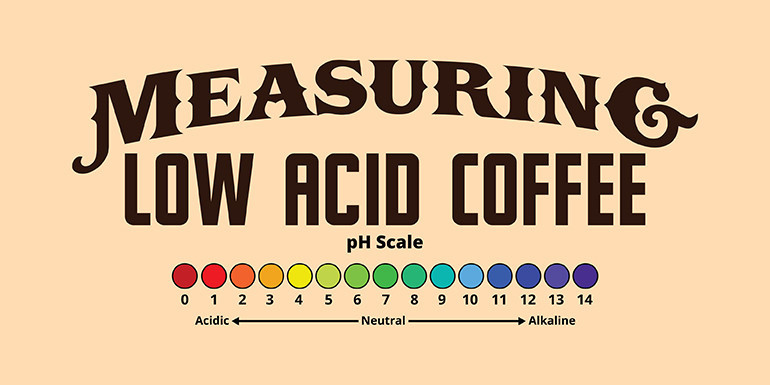
INTERSTITIAL CYSTITIS AND COFFEE | MAVERICKS LOW ACID COFFEE
Interstitial Cystitis and Coffee | Mavericks Low Acid Coffee
Are you a coffee lover who suffers from Interstitial Cystitis? If so, you're probably well aware of how acidic and high in caffeine content coffee can be. While drinking a morning cup of coffee is a daily ritual for many people, for those with Interstitial Cystitis (IC), it can be a real challenge.
In this post, I will explore the link between Interstitial Cystitis, also known as painful bladder syndrome, and coffee. I will offer some real solutions to give you the best opportunity to find a coffee that will actually work for you and help you not only to drink coffee again but to enjoy it and drink with confidence. Keep reading to learn more!
Since Interstitial Cystitis (IC) is a bladder condition, drinking coffee can present two major hurdles. The two man issues for IC suffers lies within the inherent nature of the coffee bean itself.
-
Acidity
-
Caffeine
The coffee bean itself is actually the seed of the coffee cherry. The seed acts as a store for the plant. The various organic acid compounds, polysaccharides, lipids, cellulose, and caffeine content, all reside in the coffee bean (seed) and are responsible for coffees nearly 1000 flavors, aromatics, and its signature caffeine content that millions start their day with each morning.
The acidic nature of coffee beans
Naturally occurring organic acid compounds such as Chlorogenic acid, Malic acid, Citric acid, Quinic acid, and Phosphoric acid constitute the primary sources of acidity in all Arabica coffee beans. The degree of concentration of these organic acidic compounds dictate the acidity level of the coffee. Chlorogenic acid (CGA) in particular, and CGA -5 specifically. Reduction of CGA -5 is the key to a truly low acid coffee. The most effective means of addressing CGA content is through roasting. (more about that latter)
The next issue for some IBS sufferers is caffeine. Coffee beans also contain very high levels of caffeine, that can also affect the bladder of Interstitial Cystitis sufferers. Let's consider caffeine next.
IC and Caffeine Content
In addition to the high acidity that I mentioned, caffeine levels in caffeinated coffee can aggravate bladder symptoms. While coffee's acidity might be the #1 contributor to IBS symptoms, for many caffeine can be just as a serious trigger. The great news for IC sufferers is that decaffeinated coffee has come a very long way in both caffeine removal and in taste and quality. Some decafs today have residual caffeine levels of less than 1%.
Mitigating Acidity and caffeine
Now that we have generally identified acidity and caffeine as the culprits that may cause IC symptoms, let's examine how to mitigate these problems. There are several methods to reduce acidity in coffee, most involve special treatments and have varying degrees of success. However, the most effective means of significantly reducing acidity levels is slow roasting.
Slow Roasting
Roasting any coffee bean involves time, temperature, and airflow. In the case of slow roasting, the coffee bean is simply roasted at higher temperatures for a longer duration. The science has been in on this subject for nearly 40 years. I wrote about it in my article the Science Behind Slow Roasting.
The net result of slow roasting are as follows:
-
A coffee bean that is very low in acid.
-
The coffee is very smooth without bitterness.
-
Has a more sweet natural full bodied flavor.
-
100% All Natural process.
Choosing slow roasted low acid coffees give you a very low acid coffee that has a great natural flavor. Let's turn our focus on decaf.
Decaffeinating Coffee Beans
Natural water processed decaffeinated coffees are both widely available and high effectively at removing caffeine from coffee beans. Unlike traditional chemical decaffeinated processes that use solvents like Methyl Chloride, water processed decafs are chemical free and even available as organic.
A Mountain Water Processed decaf will nearly eliminate all caffeine to trace levels, with a typical residual caffeine level of .oo4%. This is important because, if your interstitial cystitis symptoms are exacerbated by caffeine content, a Mountain water processed decaf is a game changer.
I have written more on this subject about how the water processed decafs methods work and you can read Water Processed Decafs: Swiss Water or Mountain Water, if you want more details.

The highlights on water based decaf are these:
-
Water decaf process is better than 99% effective.
-
They do not have solvent residual flavors.
-
Are 100% chemical free and can be certified organic.
-
Are not harmful to humans.
-
Very neutral affect on taste
Good news: There are good options
You see the good news is many people that suffer from IC can drink coffee successfully. Each situation will vary as each person's health experiences can be unique to themselves. Some people struggling with IC can drink low acid coffee and not be affected by caffeine. Others need a decaffeinated low acid coffee. So where to go from here.
Using the pH score to select a coffee.
I promised you information and tools that you could use. Here is a simple tool. Know the pH score. This is such an easy way to assess low acid coffee, I wrote about it more in depth in my article Measuring Low Acid Coffee.
If a coffee does not have a pH score of 5.5 or better avoid it (higher the better).

However, any true low acid coffee brands should have much less acidity in most cases removing between 70% to 90% of acidity with pH scores from pH 5.5 to pH 6.0 or greater.
Searching for low acid coffees in marketplace
Here is what you will probably come across in the marketplace. Most roasters do not mention their pH level. You just have to take their word that i'ts low acid. Sometimes, they will give a score, but provide no documentation, and rarely, if ever, is it certified by an independent lab.
At minimum, look for a pH score 5.5 or greater and make sure it is lab certified.
Beware of tips and tricks.
There are numerous ways to address coffees acidity. Unfortunately, many have a mild effect, and some might moderately affect the acidity, only a few will have a significant impact. Let's look at the common tips you see on the internet and then we will look at some real solid options.
Brewing
A quick note on brewing your coffee. Cold brew can moderately affect pH, but not to the same degree as a slow roasted low acid coffee. Plus, it takes time, you have to wait 12 to 24 hours, or what if you like your coffee hot.
With slow roasted low acid coffee, hot or cold you can drink it straight black. Its quick and easy and offers the most acid reduction. Great for brew at home, with quality blends, or signal origin.
Additives to your coffee
Some people add various "things" to their coffee. Salt, sugar, baking soda, soy, almond milk, lactose free creamers, and the list goes on. If that works for you, more power to you. However, other issues and variables are not present that just might be helpful.
Using cream will involve lactose. The use of creamers adds sugar to the mix and may pose problems to allergies or intolerance. Milk substitutes and non dairy creamers might be an option for some, but they can introduce sugars, or artificial sweeteners allergies to nuts or soy, etc. If it's not one thing it's another. While you may show symptom improvement on the one hand, you might add to your symptoms elsewhere.
IC and low acid coffee: putting it all together
If you need a decaf and low acid, slow roasted roasted water based decafs are the best choice. Plus, there are organic options. I have been producing or slow roasting low acid coffees and water based decafs for nearly 20 years for many with IC, Irritable Bowel Syndrome, Gastroesophageal reflux disease (GERD), Barrett's syndrome, and others to name a few.
Getting started
Give Mavericks a try. Let me send you a great tasting low acid regular or water based decaf, chemical free made with 100% organic ingredients. Here is a free ship code: freeic
Hope this article helps you.
-Ryan
FAQ
Can I drink coffee with interstitial cystitis?
Slow roasted low acid coffee are very low in pH and have a natural rich and smooth taste. If caffeine is a problem. Select a water based slow roasted low acid coffee. They have trace amounts of residual caffeine at .004% and can have pH scores as high as 6.39 (higher the better)
Is decaf coffee better for interstitial cystitis?
It can be. Some people suffering with Interstitial Cystitis (IC), have a low tolerance to coffee's acidity and also are symptomatic with caffeine. A great water based decaffeinated coffee is a good choice with residual caffeine level at .004%. If acid is a problem use a slow roasted low acid coffee.
What is the least acidic coffee?
The least acidic coffee is Mavericks Dark French blend with a pH of 6.39. Its laboratory certified low acid.
3 comments
-
Thank you for your time and consideration with people who deal with IC. I will give it a try!
-
Have had severe IC for 5 years now. Follow the entire IC diet with the exception of coffee, which has to change. ONE cup of coffee (Dunkin donuts is the most mild, size small) will affect me for 3 days. UGH I usually can go up to a week now without coffee then I desperately want a cup. Hope low acid coffee will help. This is a lousy, crummy disease.
Christen
How do I get a free sample ? I am an IC sufferer ?